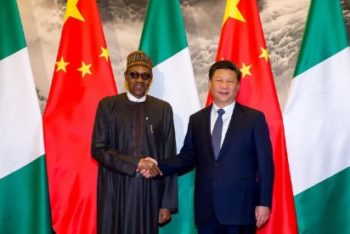
A research fellow at the Chinese Academy of Social Sciences (CASS), in Beijing, China, Prof. Zhang Yong-Peng, on Tuesday said that for more Chinese development assistance to be extended to Nigeria, both countries should become active partners.
Yong-Peng told a Delegation of visiting Nigerian Journalists in Beijing, while making clarification on “The Belt and Silk Road: Creating New Development in Africa,’’ that it was imperative for Nigeria to become more active with China.
“China knows Nigeria as a major power in Africa and would continue to create more opportunities to access her development assistance and funds. Let me say that Nigeria can benefit a lot more from the Chinese government.
“The Chinese Government’s Belt and Road Initiative currently covers 100 countries, including Ethiopia, South Africa and Egypt.
“Nigeria should give us good development plans, because China is ready to provide more support to Nigeria. Therefore, Nigeria needs to be more active with the Chinese government.
“China is today rising as a political power and needs to extend her political and economic power. And China also needs protection where her political and economic interest is,’’ he said.
The Professor of International Politics at the Institute of West, Asian and African Studies at CASS said that many other African countries had been benefiting from the agreements reached on the Forum on China-Africa Cooperation (FOCAC).
Yong-Peng said that the Silk Road Economic Belt was proposed in 2013 by Chinese President Xi Jinping, to build a trade and infrastructure network connecting Asia with Europe and Africa, along the ancient trade routes.
According to him, more than 100 countries, including European countries, have already signed the Silk Road Economic Belt with the Chinese government, with many roads already built by Chinese companies in the European countries.
He said that the initiative was meant to promote peaceful co-existence, mutual respect for other countries’ sovereignty and territorial integrity, mutual non-aggression and mutual non-interference in others’ internal affairs between countries.